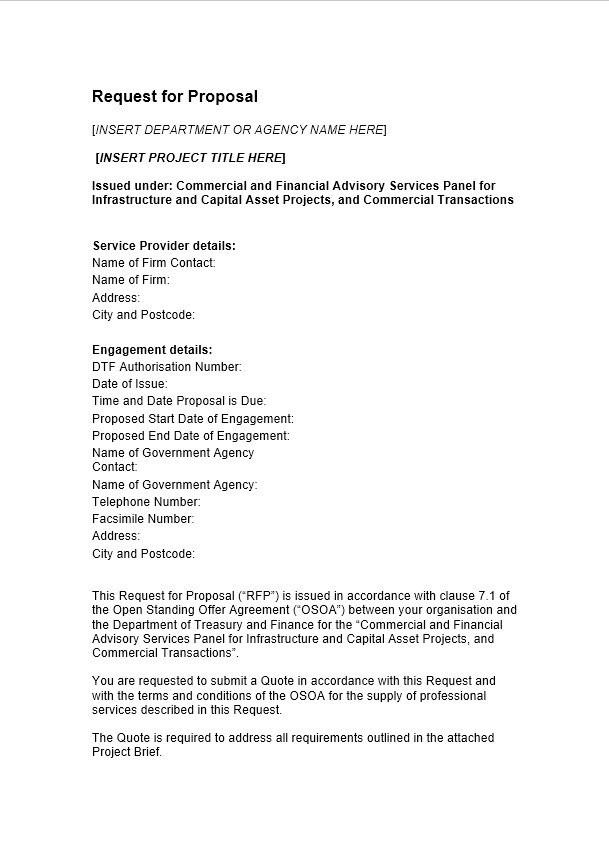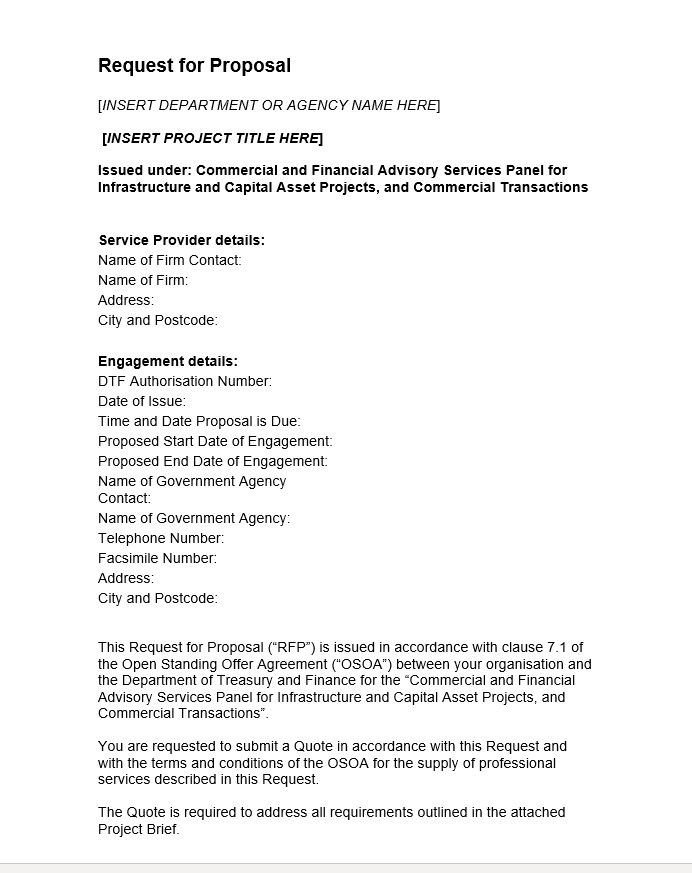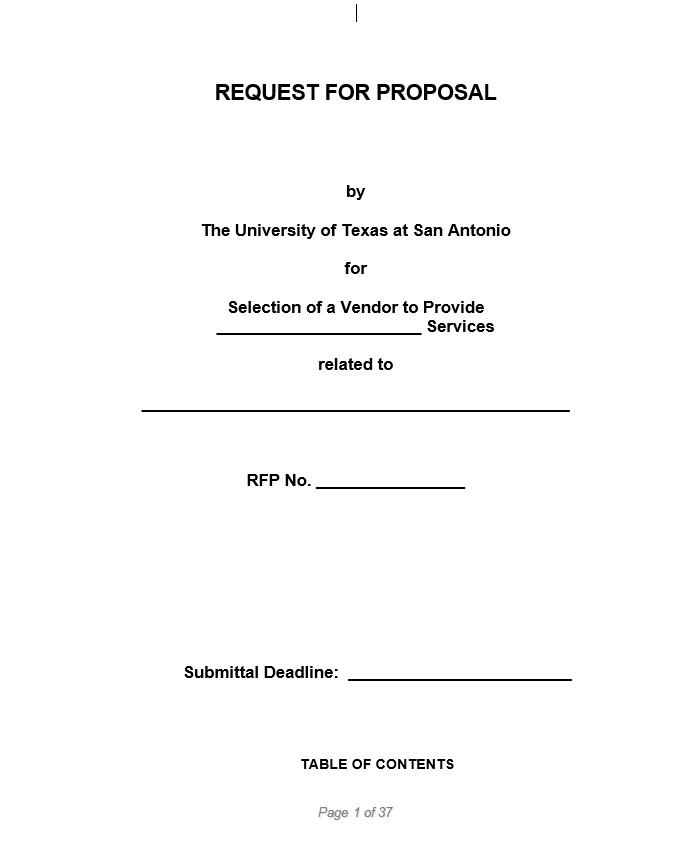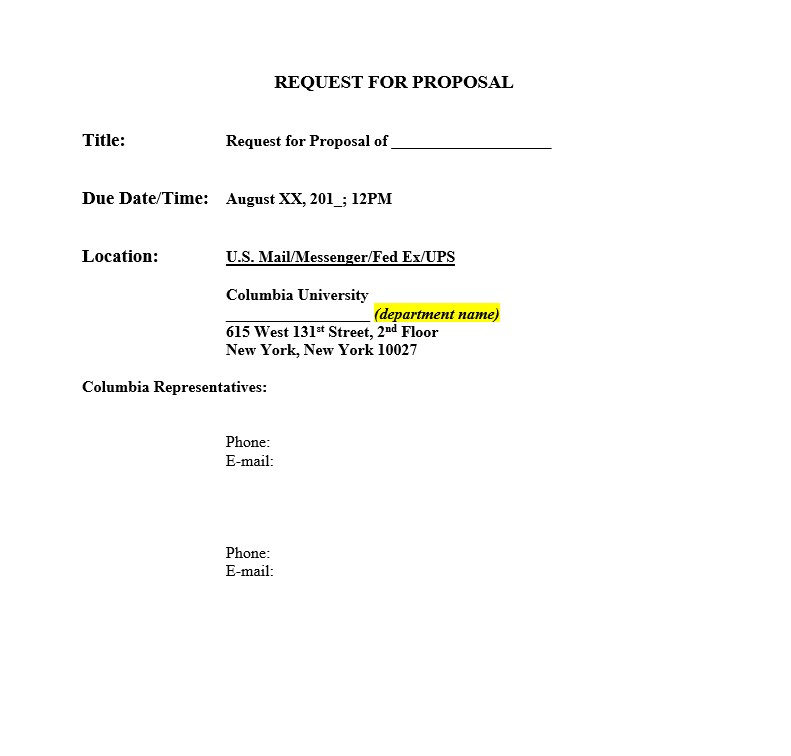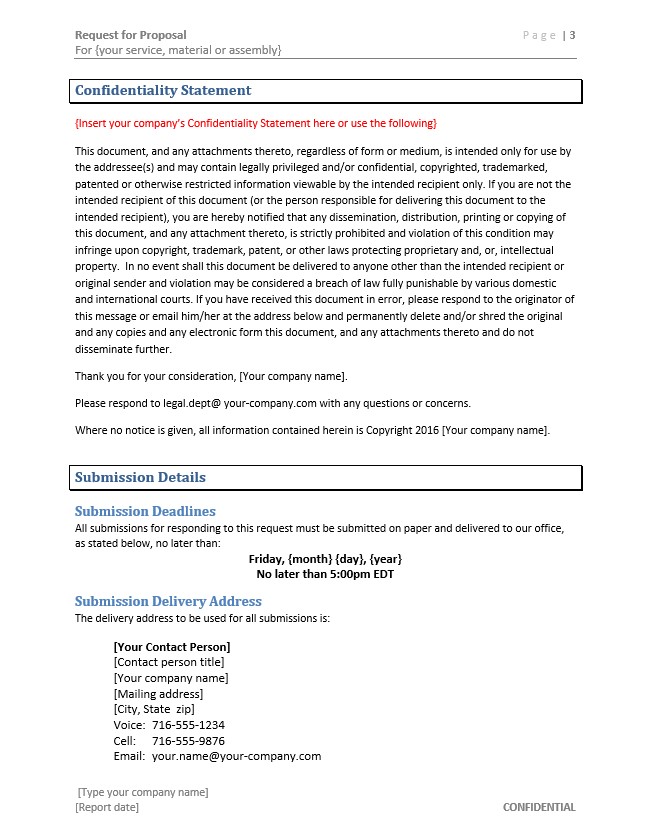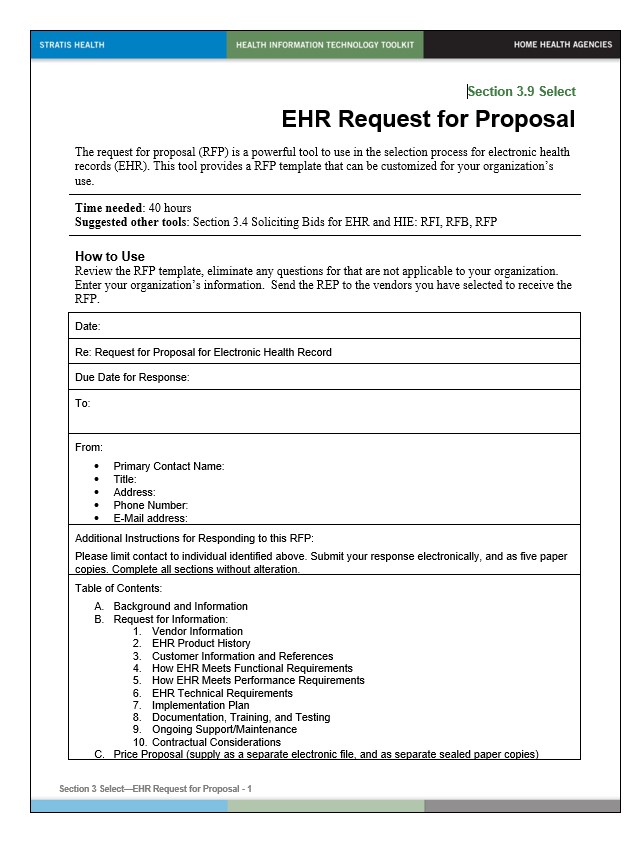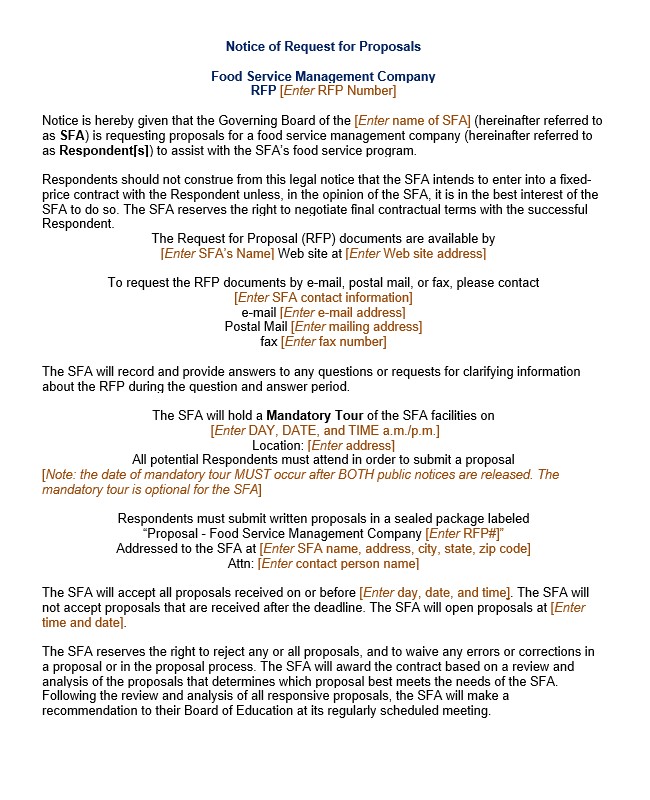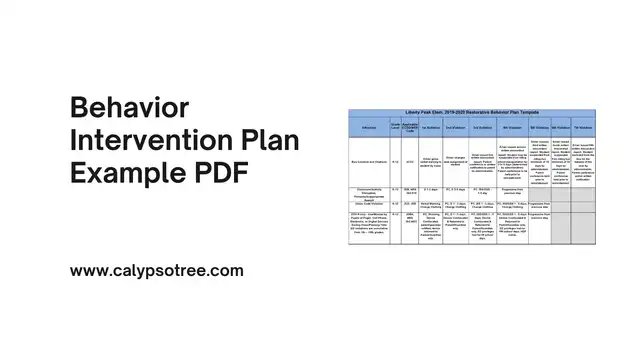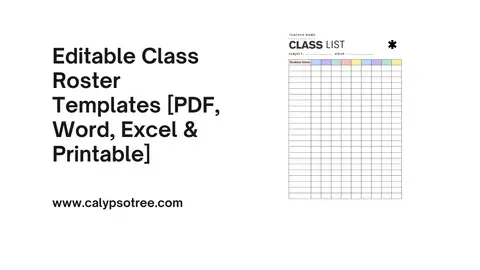A Request for Proposal (RFP) is essential for businesses seeking to solicit vendor proposals. Whether for business projects, research, or other professional needs, an RFP ensures transparency and fairness in the selection process. This article will explore how to write an RFP, key components, types, templates, tips, examples, FAQs, and more.
A proposal is a plan that is outlined in the form of a work plan, careful, systematic, and thorough plan carried out by proposal writer to request or propose before conducting an action. Simply put, the proposal is interpreted as a form of submission or application, offering in the form of ideas, thoughts or plans in other parties in order to get support. The support can be either in the form of permits, approvals, funds and so forth.
A proposal can also be said as a working guideline, a complete map that will be passed during the activity with a complete description of the scope and sequence of activities, the time period from the start of each activity, other parties involved, facilities needed and other important information.
How to Write a Request for Proposal Sample: Step-by-Step Guide
They are Step-by-Step Guides on How to Write a Request for a Proposal:
Identify Your Needs
Define the Project Goals: What do you want to achieve with this project?
- Determine Specific Requirements: What are the must-haves and nice-to-haves?
- Consider Potential Constraints: Are there any limitations such as budget or time?
Define the Scope of Work
- Outline Tasks: What tasks need to be performed?
- Detail Responsibilities: Who will be responsible for what?
- Specify Deliverables: What needs to be delivered, and when?
Set a Timeline
- Create a Schedule: Include start and end dates and all key milestones.
- Consider Potential Delays: Make provisions for unexpected delays.
Determine the Budget
- Set a Budget Range: What’s the financial range for the project?
- Itemize Costs: Break down costs into specific categories for transparency.
Create Evaluation Criteria
- Set Scoring System: How will you rate proposals?
- Include Important Factors: What aspects are most important to your organization?
Write the RFP
- Compile All Information: Include all the above details in a clear, coherent document.
- Use Simple Language: Keep it accessible for all potential bidders.
Distribute the RFP
- Identify Potential Vendors: Who might be interested and capable?
- Send Out the RFP: Make it publicly available if needed, or send it directly to chosen vendors.
Reasons for writing a Request for Proposal
There are various reasons why people request for proposals. Some of the reasons are:
- To establish businesses.
In the field of business or business, the proposal serves as an illustration and projection in establishing a business.
- To submit a tender
In a project, the proposal serves as the basis for conducting tenders, both from government and private institutions.
- To conduct research
In the general research field, proposals serve as a basis for conducting research related to social, cultural, religious, economic and other fields.
- To apply for credit at the bank
- To hold activities or events
The proposal serves to provide detailed information about activity when submitting funds for the implementation of activities, such as celebrations, seminars, training, and others.
Due to those reasons, people decide to write a proposal, so that they can get financial assistance, support, or simply permission or approval.
Types of Proposals
In general, proposals can be divided into four types. Referring to the definition and reasons for writing a proposal above, here are some types of proposals:
- Activity Proposal
This is a proposal to carry out an activity. The contents of the activity proposal are the submission of an activity plan, both individual and group, for example, art and cultural performances. Often these activity proposals are written as a request for funds from certain parties. And as compensation, the activity organizer will offer something useful for donors, such as advertising space.
- Business Proposal
These are proposals related to the business world. The examples are business establishment proposals, cooperation proposals between companies, and others.
- Project Proposal
This type of proposal is generally used in the business world where the contents of the proposal are about a series of activity plans. One of the examples is a proposal for a development project.
- Research Proposal
This type of proposal is generally used in the academic field. Examples of research proposals are for making theses, theses, and others. This proposal was made as submission of research activities.
A good request for proposal will make the goal of writing the proposal itself successfully accomplished. You can see some of the examples of good request for proposal template on this page.
Elements of a Request for Proposal
Task Definition
- Overview: Provide an outline of the task.
- Goals: Clearly state what the scheme aims to reach.
Scope of Work
- Tasks and Deliverables: What job must be accomplished, and what must be provided?
- Standards and Expectations: Any quality standards or specific expectations.
Timeline
- Key Dates: Include all critical dates, from start to finish.
- Milestones: Highlight significant project milestones.
Budget
- Total Cost: Contain the total funding for the task.
- Payment Terms: Detail when and how payments will be completed.
Evaluation Criteria
- Criteria and Weighting: What factors will be considered, and how much will they weigh?
- Process: Summarize how proposals will be considered.
By meticulously planning and detailing these aspects of an RFP, you can create a powerful record that communicates your needs and anticipations.
It sets the stage for potential vendors to provide proposals closely aligned with your project’s needs, enabling you to create an informed and suitable choice.
Tips for Writing a Request for Proposal
Certainly! Writing an effective Request for Proposal (RFP) requires careful consideration of many factors. Below are some practical tips and best practices to guide you through the process:
- Be Clear and Concise
- Use Simple Language: Avoid jargon and technical terms unless necessary. Keep your language accessible to ensure all potential bidders can understand your requirements.
- Be Specific: Clearly define what you need, including specifications and quantities. Ambiguity can lead to misunderstandings and incorrect proposals.
- Provide Detailed Requirements
- Outline Scope of Work: Define what needs to be done, including tasks, deliverables, and specific standards or guidelines.
- Include All Relevant Information:** The more detailed you are, the more accurate the proposals will be.
- Set Realistic Expectations
- Avoid Over-Promising: Be honest about what you expect and what is feasible within the budget and timeline.
- Consider Potential Challenges: Be aware of any possible obstacles and clarify them in the RFP.
- Create a Fair Evaluation Process
- Define Evaluation Criteria: Clearly state how proposals will be assessed, including the criteria and their weighting.
- Stay Objective: Evaluate proposals based on the criteria, not personal preferences or biases.
- Respect Vendors’ Efforts
- Provide Sufficient Response Time: Allow ample time for vendors to understand the requirements and prepare a thoughtful proposal.
- Offer Feedback if Possible: If a vendor’s proposal is not selected, consider providing feedback to help them in future bidding processes.
- Include Legal Considerations
- Detail Terms and Conditions: Include all contractual terms, such as payment schedules, confidentiality agreements, and compliance with laws and regulations.
- Seek Legal Advice if Needed: Ensure that all legal aspects are covered by consulting with legal professionals if necessary.
- Make Use of Templates
- Consider Using RFP Templates: Templates can provide a solid structure, ensuring you don’t overlook any essential components.
- Customize as Needed: Tailor the template to your specific needs and project.
- Encourage Questions
- Provide Contact Information: Let vendors know whom to contact if they have questions.
- Be Responsive: Answer questions promptly and accurately to assist vendors in preparing their proposals.
Benefits of Using RFP Templates
The benefits of using Request for Proposal (RFP) templates:
- Time-Saving:
- Ready-Made Structure: Templates provide a predetermined format, removing the need to create a document from scratch.
- Quick Customization: With well-designed sections, you can easily tailor the template to your project’s specific needs.
- Reduction in Errors: A template helps ensure no critical information is overlooked, reducing the likelihood of mistakes.
- Consistency:
- Uniform Appearance: Templates provide a standardized look and feel, which adds to the professionalism of the document.
- Ease of Understanding: A consistent format makes it easier for vendors to find information, enhancing readability and understanding.
- Alignment with Industry Standards: Many templates are designed to align with industry best practices, reinforcing consistency across different projects.
- Comprehensive Coverage:
- All-Inclusive Sections: Templates usually cover all the necessary sections, ensuring you include all relevant details.
- Guided Process: Prompts and examples within templates guide you in providing the required information, ensuring completeness.
- Applicability to Various Projects: The structured format can be applied across different projects and industries, making it versatile.
- Customizable:
- Adaptability: You can modify templates to match your project’s specific requirements, making them suitable for various purposes.
- Add or Remove Sections as Needed: Templates often allow flexibility in including or excluding parts per your needs.
- Integration with Branding: Many templates enable you to integrate your organization’s logo and branding, making them more personalized.
- Cost-Effective:
- Free and Premium Options: Many online resources offer templates at no charge or for a nominal fee, making them an affordable option.
- Reduction in Man-Hours: Templates can significantly reduce the labor costs of drafting an RFP by speeding up the creation process.
- Enhanced Collaboration:
- Ease of Sharing: Templates in common formats like Word or PDF are easy to share with team members for collaborative editing.
- Unified Approach: Using a common template across teams ensures everyone follows the same structure, enhancing collaboration.
- Legal and Compliance Alignment:
- Inclusion of Legal Terms: Some templates include standard legal clauses, assisting in compliance with legal requirements.
- Alignment with Regulations: Templates designed for specific industries often align with relevant regulations and standards.
Request for Proposal Templates
Templates can simplify the process of creating an RFP. Various templates are available online, tailored to different industries and needs. They usually include placeholders for all essential elements, ensuring you notice everything.
Templates in Various Formats:
- Request for Proposal Template Word: A flexible RFP template available in Microsoft Word format, allowing for easy customization and editing.
- Request for Proposal Template Free: A no-cost template option that provides a basic structure for creating an RFP, suitable for various industries and needs.
- Request for Proposal Template Construction: Tailored to the construction industry, this template outlines the specifics needed for construction projects, such as materials, timeline, and building codes.
- Request for Proposal Template Excel: Designed in Excel format, this template helps organize data and information systematically, useful for projects requiring detailed budgeting or scheduling.
- Request for Proposal Template PDF: A widely accepted format, the PDF template ensures consistency across different platforms, preserving the layout and design of the RFP.
Templates for Specific Sectors:
- Government Request for Proposal Template: A standardized template used by governmental agencies to solicit bids for projects or services, encompassing regulations and compliance with public policies.
- Design Build Request for Proposal Template: Tailored for projects that integrate both design and construction phases, this template solicits bids from firms capable of handling all aspects of the project.
- General Contractor Request for Proposal Template: Specific to the construction industry, this template is utilized to obtain proposals from general contractors for various building tasks.
- Response to Request for Proposal Template: A guide or template vendors use to respond to an RFP, ensuring they include all necessary information and adhere to the required format.
- Event Request for Proposal Template: It targets event planners and coordinators. This template seeks proposals for organizing and managing events, such as conferences, workshops, or celebrations.
Examples of Requests for Proposals
These are some Examples of Requests for Proposals:
- Request for Proposal for Consultancy Services: This RFP seeks specialized advice and solutions from professional consultants in various fields, such as management, finance, or technology.
- Request for Proposal for External Audit Services: A formal request to auditing firms to examine an organization’s financial records and ensure accuracy and compliance with regulations.
- Request for Proposal for Website Design and Development: This RFP targets web development agencies or freelancers to create or revamp a website, focusing on design aesthetics and functionality.
- Request for Proposal for Legal Services Template: A standard template to solicit proposals from law firms or professionals for legal counsel, representation, or other legal services.
- Request for Proposal for Audit Services: An RFP seeking professional auditors to review financial statements, assess internal controls, and provide assurance of financial integrity.
- Request for Proposal for Legal Services: An official request for proposals from legal entities to provide various legal services like contract drafting, dispute resolution, and legal advice.
- Request for Proposal for Construction Project: An RFP that solicits bids from construction firms for specific building or infrastructure projects, outlining the scope, timeline, and specifications.
- Request for Proposal for Internal Audit Services: A document seeking proposals from firms to conduct internal audits, focusing on evaluating the effectiveness of an organization’s risk management and internal processes.
- Request for Proposal for Banking Services: An RFP targeting banks or financial institutions to provide banking services such as account management, investments, or loans.
- Request for Proposal for Printing Services: This RFP invites printing companies to bid on projects encompassing various products like brochures, business cards, or promotional materials.
EHR Request for Proposal (RFP): An Electronic Health Record (EHR) Request for Proposal is a document that invites software vendors to submit proposals for providing an EHR system. EHR systems manage and store patients’ electronic medical records. This type of RFP will detail the specific requirements, functionalities, and features the healthcare organization seeks, such as interoperability, security, user-friendliness, and compliance with relevant regulations.
- Notice Request for Proposal (RFP): A Notice Request for Proposal is typically an announcement or preliminary document to inform potential vendors that an organization will soon release an RFP. It may include basic information about the upcoming RFP, such as the project’s nature, scope, timeline, and the date when the complete RFP will be available. This notice allows potential vendors to prepare and express interest in advance, ensuring a more competitive and responsive proposal process.
These overview the specific needs and objectives associated with each type of Request for Proposal, reflecting different sectors and services.
Conclusion
RFP is vital for obtaining the best services or solutions for any project. You can create an RFP that attracts high-quality proposals by understanding the different components, types, and best practices. Utilizing templates and learning from real-world examples can also aid in crafting an effective RFP. Clarity and detail are your friends in this process, leading to successful project partnerships.
FAQs
What is a Request for Proposal (RFP)?
- Answer: An RFP is a document sent to potential vendors asking them to submit a proposal detailing how they can meet specific requirements for a project or service. It typically includes information on the scope of work, deadlines, budget, and evaluation criteria.
Why are RFPs Necessary?
- Answer: RFPs provide a structured way for organizations to define their needs and expectations and solicit detailed proposals from vendors. It ensures transparency, fair competition, and alignment with organizational goals.
Can Anyone Respond to an RFP?
- Misconception: Only large corporations can respond.
- Answer: Any qualified vendor, including small businesses or individual contractors, can respond to an RFP if they meet the specified requirements.
Is an RFP the Same as a Request for Quotation (RFQ)?
- Answer: No, an RFP is broader and asks for solutions to a problem, while an RFQ specifically focuses on pricing for particular products or services.
How Long Should Vendors Have to Respond to an RFP?
- Answer: This varies depending on the complexity of the request but generally ranges from a few weeks to a couple of months. Providing sufficient time ensures quality responses.
Are RFPs Legally Binding?
- Answer: The RFP itself is typically not legally binding, but the contract that results from the RFP process is.
Can RFPs Be Customized for Specific Needs?
- Answer: Absolutely! RFPs should be tailored to fit the particular project’s requirements and objectives.
What Happens After an RFP Is Issued?
- Answer: Potential vendors submit their proposals, and the organization evaluates them based on predetermined criteria. The chosen vendor is then awarded the contract, and negotiations may follow.
Are RFPs Only Used in the Business Sector?
- Misconception: RFPs are exclusive to businesses.
- Answer: RFPs are utilized across various sectors, including government, education, healthcare, and nonprofits.
Is the Lowest Bid Always Selected?
- Misconception: Price is the only consideration.
- Answer: Although cost is a factor, other aspects like quality, vendor experience, and alignment with project goals are equally, if not more, important.

The content creator team at calipsotree.com is dedicated to making topics accessible to everyone, with over 9 years of experience in writing and breaking down complex concepts into easy-to-understand articles that answer readers’ financial questions.






